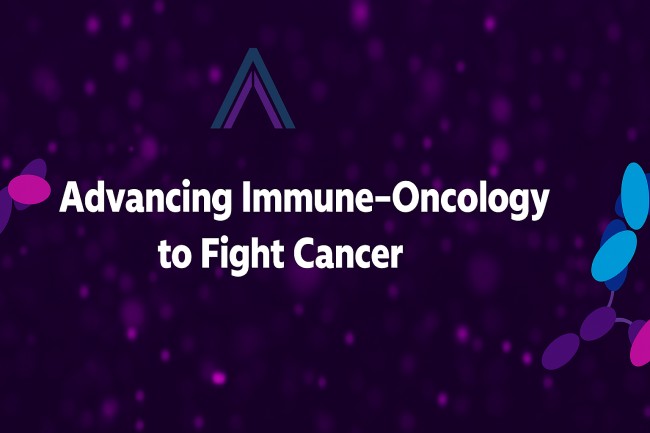Affivant: Pioneering Immune-Oncology for a New Era of Cancer Treatment

Cancer remains one of the most significant global health challenges, and while advances in medicine have delivered new therapies, many patients continue to face limited options. Immuno-oncology has emerged as a transformative approach, harnessing the body’s own defences to recognise and destroy malignant cells. Within this field, Affivant is carving a unique path by focusing on the power of the innate immune system. Based in Basel, Switzerland, Affivant is dedicated to developing novel therapies that engage natural immune mechanisms to fight cancer, offering fresh hope to patients and clinicians alike.
Who is Affivant?
A Swiss Biotechnology Innovator
Affivant is a biotechnology research company with a clear mission: to activate and enable the immune system to overcome cancer. Unlike many biotech firms that centre their strategies on T-cell therapies, Affivant emphasises the innate arm of immunity. This focus allows the company to address tumours that evade conventional treatments and provides an alternative for patients who may not respond to existing options.
Company Profile
-
Industry: Biotechnology Research
-
Headquarters: Basel, Switzerland
-
Website: https://affivant.com
-
Specialisation: Innate immune cell engagers for oncology
The Science Behind Affivant
Harnessing the Innate Immune System
The human immune system consists of two key components: the adaptive system, which relies on T-cells and antibodies to provide specific responses, and the innate system, which forms the body’s first line of defence. Affivant’s work centres on engaging innate immune cells such as natural killer cells and macrophages to identify and eliminate cancer cells.
Bi-Specific Innate Cell Engagers
Affivant’s innovative therapeutic platform is built upon bi-specific innate cell engagers. These are engineered antibodies designed to bind simultaneously to cancer cells and to immune cells. By bridging this connection, they trigger targeted immune attacks on malignant cells.
-
Targeting cancer antigens: Their molecules are engineered to recognise distinct tumour markers, including folate receptor alpha, which is frequently expressed on solid tumours.
-
Recruiting innate immunity: The second binding site engages receptors like CD16A found on natural killer cells, prompting direct destruction of the tumour.
Potential Applications
The beauty of this approach lies in its versatility. Affivant’s bi-specific engagers can be developed as monotherapies for direct tumour control or used in combination treatments to enhance the efficacy of existing therapies such as checkpoint inhibitors.
Affivant’s Pipeline
Lead Candidate: AFVT-2101
Affivant’s leading programme, AFVT-2101, exemplifies its scientific vision. This candidate is designed as a bispecific tetravalent antibody that binds both folate receptor alpha on cancer cells and CD16A on innate immune cells.
Why Folate Receptor Alpha?
Folate receptor alpha is expressed in several hard-to-treat cancers, including ovarian cancer. By targeting this receptor, AFVT-2101 holds promise for addressing patient populations with limited therapeutic alternatives.
Stage of Development
AFVT-2101 has completed preclinical studies demonstrating effective tumour engagement and favourable safety profiles. The company has prepared for first-in-human trials, aiming to move into clinical testing once regulatory approvals are secured.
The Advantages of Affivant’s Approach
Broader Patient Access
Many immunotherapies work best in cancers with strong T-cell infiltration. Focusing on the innate immune system creates opportunities to target cancers that evade T-cell recognition.
Enhanced Safety Potential
Preclinical data suggest that innate cell engagers may lower the risk of severe side effects often linked to more aggressive therapies. This could make such treatments safer for long-term use.
Combination Synergy
By combining with existing immuno-oncology agents, these therapies could improve tumour elimination rates and lower the likelihood of relapse.
Challenges and Considerations
Scientific Risks
While the preclinical data are encouraging, translating success into clinical outcomes remains a challenge for any biotechnology firm. Innate immune engagement is still an emerging field, and uncertainties remain around long-term efficacy.
Manufacturing Complexity
Bi-specific and tetravalent antibodies are more challenging to manufacture than traditional therapies, and maintaining consistent quality at scale will be crucial for long-term success.
Competitive Landscape
The immuno-oncology sector is highly competitive, with multiple companies exploring various immune pathways. Affivant must demonstrate clear clinical benefits to stand out.
The Future of Affivant
Strategic Positioning
Affivant benefits from its location in Basel, a hub for pharmaceutical innovation, allowing access to research talent, industry partnerships, and potential investors. With strong scientific foundations, the company is well-positioned to advance its pipeline.
Patient-Centred Vision
Every step of Affivant’s development reflects a commitment to providing meaningful outcomes for cancer patients. By focusing on both safety and efficacy, the company aims to transform innate immunity from a theoretical concept into a practical therapy.
Conclusion
Affivant represents a new wave of biotechnology innovators that dare to challenge conventional approaches. By unlocking the untapped potential of the innate immune system, Affivant is shaping a future where cancer therapies are not only more effective but also more inclusive and tolerable for patients. Though still in its early stages, the company’s pioneering work in bi-specific innate cell engagers positions it as a promising contender in the global fight against cancer.
As the world continues to seek better solutions for one of humanity’s most pressing health challenges, Affivant’s mission resonates with both urgency and hope. If successful, its therapies could mark a significant leap forward in the evolution of immune-oncology.



